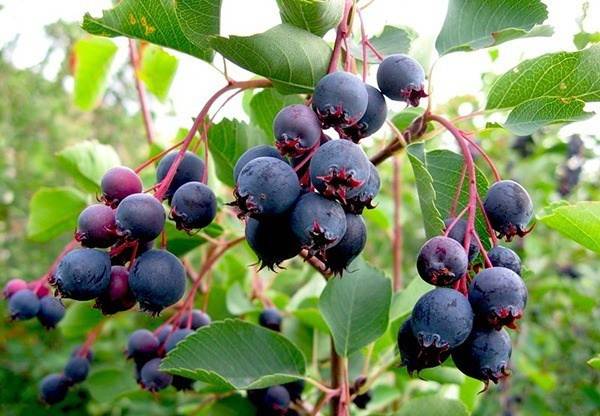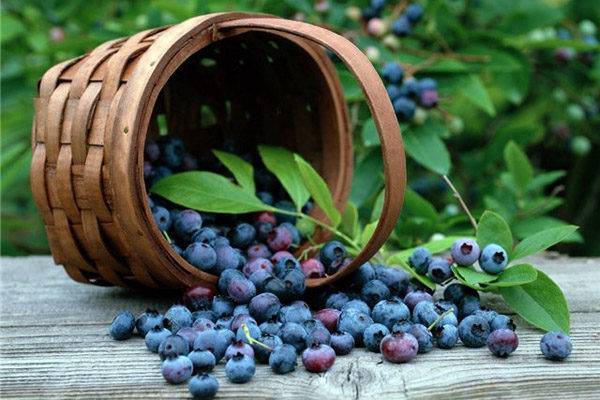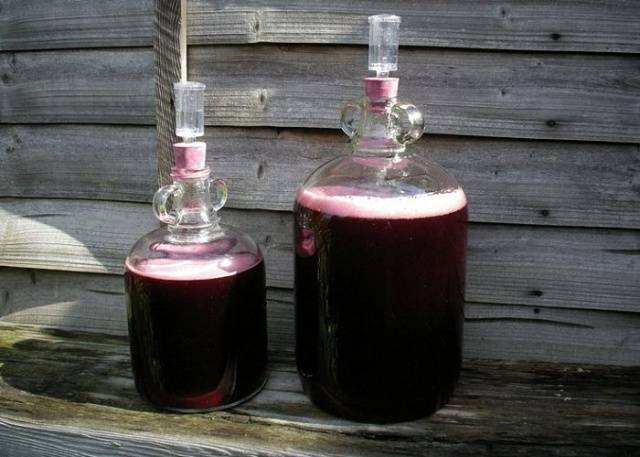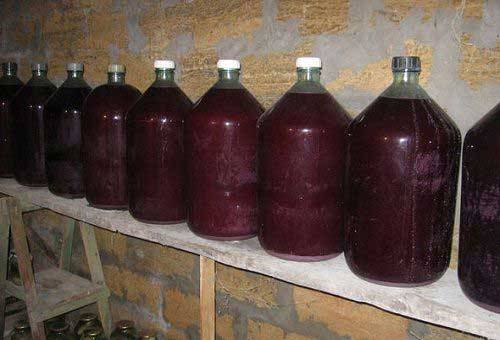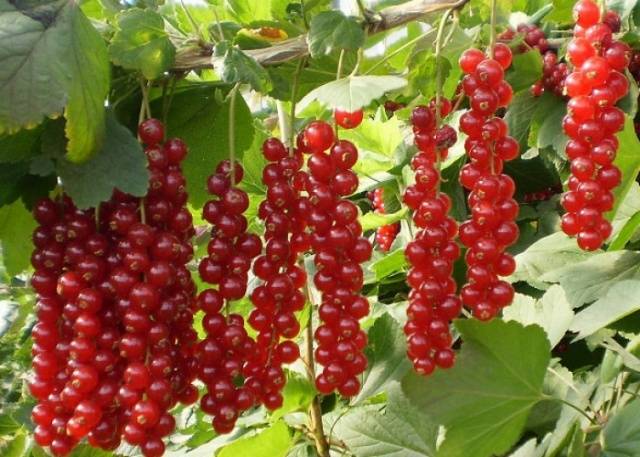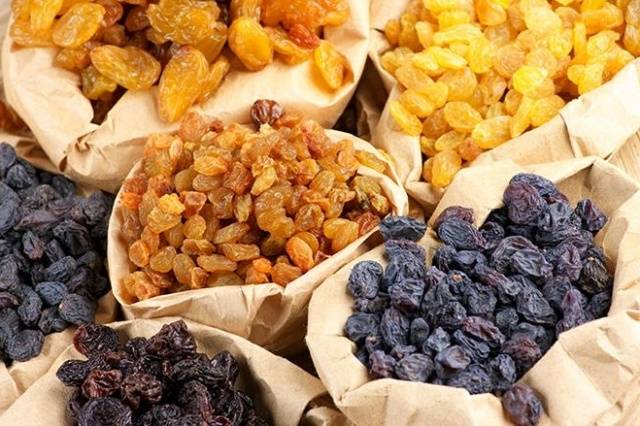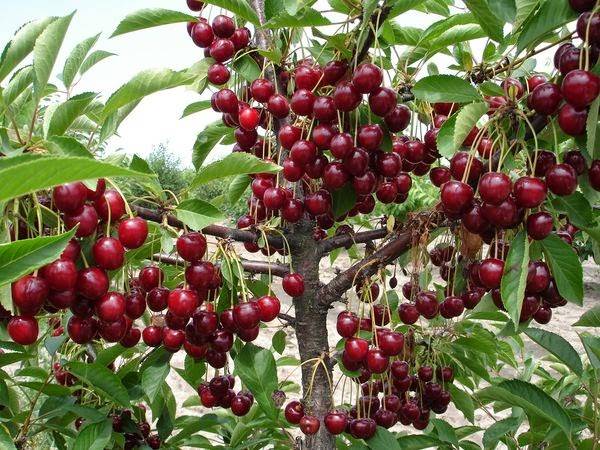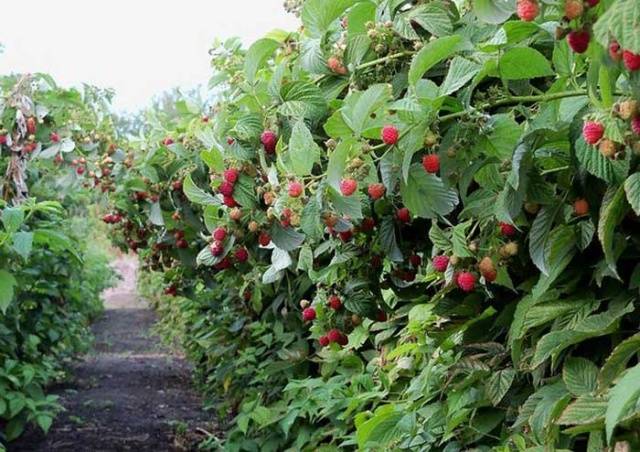Content
- 1 Characteristic features of the berry
- 2 Traditional recipe for irgi wine
- 3 An unusual combination, or wine made from yergi and currant
- 4 Recipe for homemade irgi wine with raisins
- 5 Irga and cherry wine - harmony of taste and aroma
- 6 A simple recipe for irgi wine without added sugar
- 7 How to make wine from irgi and raspberries at home
- 8 Conclusion
Irga is not a frequent visitor to the sites of the Russians. This is a deciduous shrub, the fruits of which are bluish-black berries up to 1 cm in size with a bluish bloom, which in appearance resemble black currants. They are moderately sweet, quite juicy and aromatic. They are eaten fresh and made into sweet preparations and drinks, including wine. Irgi wine is original, unusual and memorable in taste. For those who want to make it, there are several simple recipes that can be used to make this intoxicating drink at home.
Characteristic features of the berry
Irga contains practically no proteins and fats, but there is a huge amount of useful substances: sugars (more than 10%), organic acids (0.5-1%), pectins, vitamins (especially ascorbic acid), flavonoids (up to 40%) and mineral salts, tannins, phytosterols and fiber. The calorie content of the berry is low - only 45 kcal per 100 g. All this makes irgu a tasty, valuable and healthy product.
It is not difficult to make wine from irgi at home, but some difficulty in its preparation lies in the fact that it is not so easy to get juice from its berries. If you grind them in a meat grinder, you get a thick jelly, not juice. Another difficulty lies in the fact that they have a rather low sugar content and acidity, therefore, to increase the sugar in the fruits, the collected irga is first dried in the sun, and only then sent for processing. To increase the acidity, lemon juice is added to the wort.
Traditional recipe for irgi wine
How to squeeze juice correctly
To make homemade wine from irgi with your own hands, you must first squeeze the juice from its berries. Winemakers do not recommend squeezing it on a juicer: the juice will turn out to be too thick and viscous. Better to use two other ways to get it. But before that, the irga needs to be prepared: sort out, remove unripe, spoiled berries, small leaves and twigs, and then rinse the remaining whole and usable berries under running water.
You need to prepare juice like this:
- Mash the irga with a crush and leave for a day to infuse in a warm place. Then squeeze it through cheesecloth, pour the resulting juice with the amount of water specified in the recipe, and leave for another day. Then again squeeze the juice through cheesecloth. This method allows you to preserve the natural yeast that is on the berries, so you do not need to add it to the wort.
- Mash the irga, and heat over a fire to 60 ° C. Cover and let it brew for 1 day, then squeeze through cheesecloth. In this case, when preparing the wort, you will have to use brewer's yeast, since when heated, the wild yeast will be destroyed.
To obtain 1 liter of juice from the irgi, you will need about 2-3 kg of berries. From this ratio, you need to calculate how much it will be necessary to collect them for making wine.
Syrup preparation
If the recipe for making homemade wine from irgi involves the use of sugar, then the syrup must be made in advance. This is done as follows: 2 liters of water are poured into a saucepan and 1 kg of sugar is poured into it. After its complete dissolution, the syrup is boiled for 10 minutes until it thickens a little.
Preparation and filling of containers with wort
After preparing the syrup for wine, juice is poured into the container, sugar syrup is added to it, cooled to room temperature. The ingredients are taken at the rate of 1 to 2. Everything is mixed and wine yeast and juice squeezed from 1 lemon are added to the mixture. The wort is poured into cylinders at least 3 liters in volume (it is advisable to take large bottles for wine, in which the wine ferments more correctly). They are filled by 2/3, it is impossible to top up the juice, you need to leave a little space for the foam, it will form during the fermentation process.
A water seal is installed on top, it can be purchased in a store or made yourself from a plastic lid and a thin silicone tube (you can use medical tubes). The end of the tube, through which carbon dioxide will escape, is dipped into a jar of water, which is installed next to the bottle. The jar is filled with water only up to half. The lid, if it does not fit snugly against the rim of the can, can be wrapped with tape to prevent air from entering and carbon dioxide from escaping.
Fermentation process
In order for the wort from sirgi to ferment well, it must stand in a warm (about 20-24 ° C) and dark room (so that sunlight does not fall on it, from which the acid content in the juice increases). If it is colder, the wine will ferment poorly; if it is warmer, it will ferment too vigorously. Both the one and the other must not be allowed. If all goes well, bubbles of carbon dioxide will start to evolve as soon as the water seal is installed.
Under these conditions, the wine fermentation process can take about 1-1.5 months. Its end will be indicated by the cessation of the release of gas bubbles, the liquid will become lighter and more transparent, it will acquire a crimson color with a violet tint. The finished wine is poured through a tube. To make the liquid easier to move along it, you need to raise the bottle above the ground, placing it on a chair, dip one end of the hose into the wine, and bring the other to your lips and draw in the air. The drained liquid is filtered through cheesecloth, poured into cans or bottles, filling them to the very top, and then stored in a cool and dark room.
Terms and conditions of exposure
Aged wine made from irgi is much tastier and more aromatic than the one just won, and for this you need to put it in a cold and dark place for a while. The aging period is at least 6 months. If it is possible to leave it to mature for longer, then it is worth doing - as in the case of grape wine, the drink from sirgi only gets better from this. After six months have passed, the liquid is poured into other containers to remove the sediment.
Terms and conditions of storage
Homemade wine from irgi is kept for up to 5 years in a dark and cold cellar. It is impossible to keep it in the light and warm, because of this it deteriorates, becomes cloudy and sour.
An unusual combination, or wine made from yergi and currant
In addition to the irgi itself, the juice of other berries is added to the wine from it, which give it a peculiar taste and aroma. They can be found in any vegetable garden or bought in the market. For example, a drink can be prepared according to a simple recipe for wine from yergi and red currant, which, having natural acidity, will give it a more noble taste and eliminate excessive cloying.
The sequence of preparation of this type of wine is as follows: squeeze juice from currant berries and irgi berries, mix them and add syrup made from 2 liters of water and 1 kg of granulated sugar to the resulting mixture. Drain the wort into cylinders or bottles, put a water seal and leave to ferment in a warm place for a period of 1 to 1.5 months. After the completion of the process, pour the wine into prepared bottles and lower them into a cold cellar.
Recipe for homemade irgi wine with raisins
This is another version of homemade irgi wine. In addition to the berry itself, it uses raisins, which give the finished product a unique taste and aroma. It is prepared like this: take 2 kg of berries, 50 g of raisins, 2 liters of water and 1 kg of sugar.The sequence of making this wine: make sugar syrup, squeeze the juice from the irgi, add syrup and raisins to it. The mixture is left to infuse for 3-5 days somewhere in a warm place, after which the juice is drained, filtered and poured into fermentation bottles. In the future, everything proceeds in the same way as when obtaining a simple wine prepared according to a classic wine recipe.
Irga and cherry wine - harmony of taste and aroma
This recipe for homemade sirgi wine involves adding juice squeezed from cherries to the wort, which is ideal for the taste of the main berry and harmoniously complements it. To make homemade wine, they take only ripe cherries, wash them and crush them a little so that they let the juice out.
To prepare the wort, you will need the following components:
- 1.5 kg of irgi;
- 0.5 kg cherries;
- 2 liters of water;
- 1 kg of sugar.
The sequence of making wine from irgi and raisins is not complicated. First you need to make sugar syrup, pour the berries into a large bottle or jars, pour syrup on top of them and put them to ferment in a warm room. In about a month and a half, the drink will be ready, it can be drained, filtered and bottled. The shelf life of this wine is 5 years on average.
A simple recipe for irgi wine without added sugar
Although it is not considered sweet, there is a simple recipe for homemade irga wine without the addition of granulated sugar: the result is a dry sour wine. To prepare it, you need only 2 ingredients: water and berries, which must be taken in equal proportions.
Irga is sorted out, washed under running water and squeezed out of the juice, and then as much water is poured into it as needed according to the recipe. The liquid is left for 3 days in an open container, after which it is filtered through cheesecloth, the resulting liquid is poured into a bottle and placed in a warm place for fermentation. After its completion, the wine is drained, filtered, bottled and placed in the cellar for storage.
How to make wine from irgi and raspberries at home
This sweet berry can add sweetness and flavor to the wine. How to make wine from irgi and raspberries? You need to take 1 liter of juice of these berries, mix them, cook a classic syrup from water and granulated sugar (2 to 1) and add it to the mixture. Mix everything, pour into bottles and put to fermentation. Then prepare the wine in the same way as according to the traditional recipe. The shelf life is at least six months, but it is better to leave it to mature for 1 year or more.
Conclusion
It is not at all difficult to make wine from irgi with your own hands. To do this, you need a minimum of ingredients: berries, clean water and granulated sugar. The process of making wine also does not take much time and is not difficult, so anyone can make it at home.
